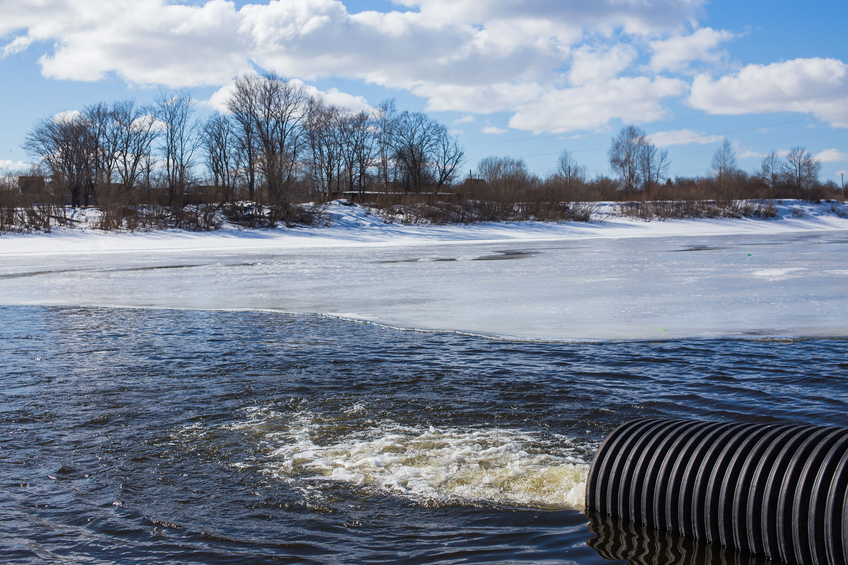New York Civil and Ethics 18 PDH Discount Package 3
Hydrologic Engineering Requirements for Reservoirs - Part 1 (C03-069)
Concrete Airfield Pavements (C01-031)
Integrating Green Infrastructure into Local Hazard Mitigation Plans (C02-082)
Ethics, Professionalism and Disciplinary Actions: Case Studies (LE1-003)

This online engineering PDH course provides guidance in hydrologic analysis of interior areas for planning, design investigations, and flood risk reduction.
Floods have social, environmental, and economic consequences and they directly impact people and communities. Some of the immediate impacts of flooding includes loss of human life, loss of livestock, and damages to properties and crops.
This course provides information of interest to planners and designers of interior system involving flood loss reduction measures and actions. Interior area investigations are differentiated from other studies only by the uniqueness of the hydrologic analysis requirements for the flood loss reduction measures commonly used. Interior area planning studies are an essential aspects of feasibility studies.
This 11 PDH online course is applicable to civil, environmental, and stormwater management engineers as well as other technical personnel interested in learning more about hydrologic analysis of interior areas.
This PE continuing education course is intended to provide you with the following specific knowledge and skills:
- Understanding the basic concepts and considerations pertinent to hydrologic studies of interior areas
- Learning the approaches, strategies, and requirements of interior hydrologic engineering studies
- Learning about the analysis methods and procedures for riverine and coastal interior areas
- Familiarizing with flood risk management measures
- Learning about the analysis of residual risk and resiliency
- Learning about a case example of the coincident frequency
In this professional engineering CEU course, you need to review the US Corps of Engineers Publication EM 1110-2-1413 "Hydrologic Analysis of Interior Areas".
Upon successful completion of the quiz, print your Certificate of Completion instantly. (Note: if you are paying by check or money order, you will be able to print it after we receive your payment.) For your convenience, we will also email it to you. Please note that you can log in to your account at any time to access and print your Certificate of Completion.

This online engineering PDH course provides information on the hydrologic engineering investigations for the planning and design of reservoir projects.
Part 1 presents the basic hydrologic concepts for reservoirs including reservoir purposes and basic hydrologic concerns and methods.
The water resource system is a system that may consists of reservoirs, power plants, diversion structures, channels, and conveyance facilities that are each constructed for specific objectives and operated together as a system. This system should be designed and operated for the most effective and efficient accomplishment of overall objectives using mathematical models and simulation.
A reservoir is the artificial body of water that forms adjacent to a storage dam. Multipurpose reservoirs are reservoirs that serve more than one purpose including generating hydroelectric power, providing flood control, storing water, enabling irrigation, and providing recreational opportunities.
This 3 PDH online course is applicable to civil and environmental engineers as well as others interested in expanding their knowledge on the hydrologic engineering considerations for the planning and design of reservoir projects.
This PE continuing education course is intended to provide you with the following specific knowledge and skills:
- Familiarizing with the different purposes of reservoirs
- Gaining an overview of reservoir storage and how it is used for authorized purposes
- Understanding the feasibility and hydrologic studies for multipurpose reservoirs
- Learning about reservoir system simulations
- Learning about the derivation of reservoir operating criteria
- Learning about the determination of hydropower firm yield
- Understanding the general study procedure for improving complex reservoir systems
- Gaining an overview of system formulation strategies
Upon successful completion of the quiz, print your Certificate of Completion instantly. (Note: if you are paying by check or money order, you will be able to print it after we receive your payment.) For your convenience, we will also email it to you. Please note that you can log in to your account at any time to access and print your Certificate of Completion.

This online engineering PDH course provides an overview of the common problems and typical repairs and includes a visual system for evaluating and rating PCC pavements.
To manage aviation airfield pavements effectively, all pavements’ conditions should be periodically checked and then organized in an inventory in order to use these evaluations to set priorities for the project or find alternative treatments.
A comprehensive pavement management system involves collecting data and assessing several pavement characteristics: roughness, surface distress (condition), surface skid characteristics, drainage, and structure (pavement strength and deflection). Based on this data and combined with the economic analysis of the project, planners can develop treatment measures for the pavements.
This 1 PDH online course is applicable to civil engineers, airport owners and managers and professionals who are interested in learning more about concrete airfield pavements.
This PE continuing education course is intended to provide you with the following specific knowledge and skills:
- Familiarizing with the rigid performance of the airfield pavement
- Identifying the different surface pavement defects such as polishing, map cracking, pop-outs, etc.
- Learning about the longitudinal and transverse joints
- Knowing the different pavement cracks such as slab cracks, D-cracking, corner cracks, etc.
- Recognizing the type of pavement distortions and their causes
- Understanding the rating system used for evaluating the pavement surface condition
- Knowing the treatment measures for the pavement defects
- Providing practical advice on rating airfield pavement conditions
Upon successful completion of the quiz, print your Certificate of Completion instantly. (Note: if you are paying by check or money order, you will be able to print it after we receive your payment.) For your convenience, we will also email it to you. Please note that you can log in to your account at any time to access and print your Certificate of Completion.

This online engineering PDH course provides basic information on how communities can integrate green infrastructure into their Local Hazard Mitigation Plans.
Communities across the United States are facing a variety of challenges, from outdated infrastructure, to water quality protection, to the need to increase community resilience and mitigate the impacts of flooding and other hazards. These communities are looking for multi-purpose solutions to these challenges.
Green infrastructure is one approach to improve water quality and address flooding challenges. Green infrastructure yields many benefits, including improved water quality, reduced flooding, infrastructure cost savings, and healthier communities. While green infrastructure alone may not fully address these issues, however, it adds capacity, flexibility, and resilience to other infrastructure systems and provides multiple community benefits.
This 2 PDH online course is applicable to civil, environmental and stormwater engineers who are interested in examining how communities can integrate green infrastructure into their Local Hazard Mitigation Plans.
This PE continuing education course is intended to provide you with the following specific knowledge and skills:
- Familiarizing with the concept of developing a Local Hazard Mitigation Plan
- Understanding the issues, requirements and evolution of stormwater management
- Learning how to integrate green infrastructure into the mitigation planning process
- Identifying important considerations for communities interested in pursuing this approach
- Exploring the green infrastructure integration efforts in the area under study
Upon successful completion of the quiz, print your Certificate of Completion instantly. (Note: if you are paying by check or money order, you will be able to print it after we receive your payment.) For your convenience, we will also email it to you. Please note that you can log in to your account at any time to access and print your Certificate of Completion.

In this online engineering PDH course, ten case studies of actual enforcement actions taken by a state licensing board are presented. The cases have been selected to be representative of situations likely to exist in many states. Board procedures and the types of enforcement actions available are shown by a variety of cases ranging from a geotechnical engineer who produced (within one hour and without visiting the site) a soils report, to an engineer who was unable to document his PDH's during a board audit. The importance of being very careful about when to put "P.E." after one's name on a document also will become apparent.
Codes of ethics for engineers typically describe standards for professional behavior. The enforcement of those ethical standards that are inscribed into law lies with the licensing boards of state governments.
This 1 PDH online course is intended primarily for all engineers seeking to deepen their understanding of what constitutes ethical and professional engineering behavior and how such behavior is enforced by the licensing board.
This PE continuing education course is intended to provide you with the following specific knowledge and skills:
-
Familiarizing with the format of enforcement decrees issued by a state licensing board
-
Knowing the ten different types of licensing violations
-
Understanding the investigative process of the board, as it attempts to determine the validity of complaints brought before it
-
Learning about the types of enforcement actions available to the board
In this professional engineering CEU course, you need to review the course document titled, "Ethics, Professionalism and Disciplinary Actions: Case Studies".
Upon successful completion of the quiz, print your Certificate of Completion instantly. (Note: if you are paying by check or money order, you will be able to print it after we receive your payment.) For your convenience, we will also email it to you. Please note that you can log in to your account at any time to access and print your Certificate of Completion.